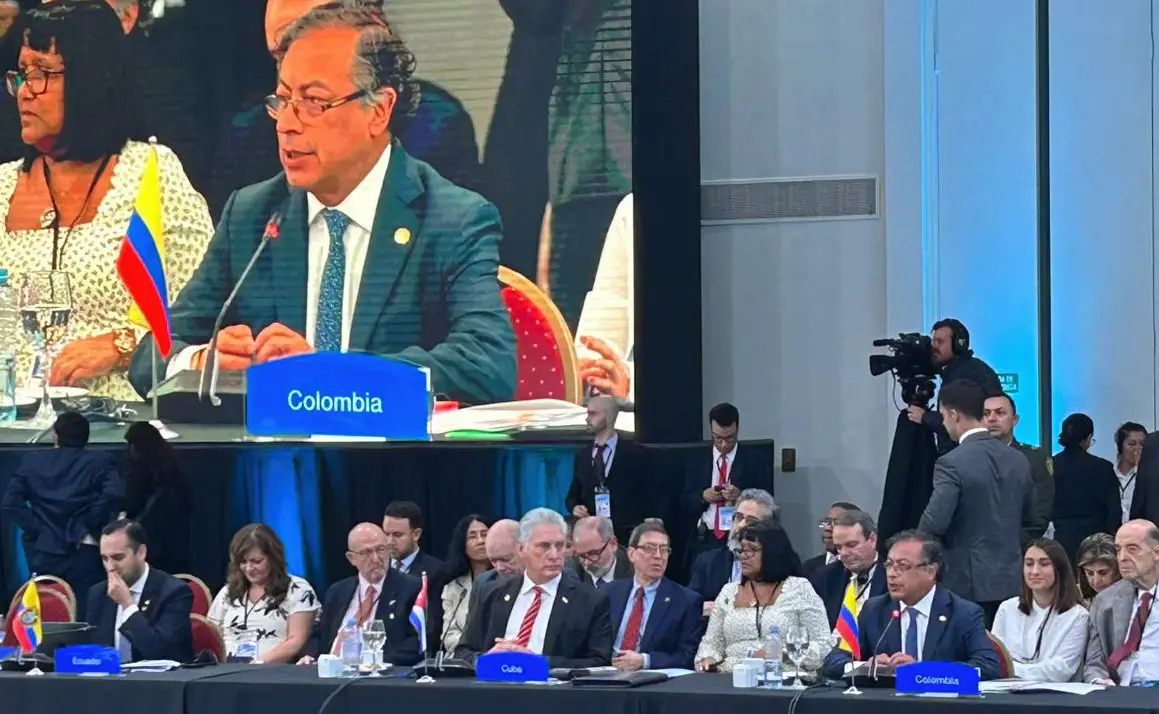Latin America and the Caribbean face the urgent need to strengthen strategic ties and move toward more effective regional integration in a period marked by geopolitical tensions, the rise of protectionism, and the weakening of the rules-based international order. Historically, the region has struggled to advance common agendas, coordinate positions on global challenges, and establish mechanisms that energize their economies. However, the current context presents an opportunity to rethink the role of Latin America and the Caribbean on the international stage, consolidating a unified voice that prioritizes collective interests over ideological divisions.
In this sense, integration must be understood as a state policy capable of addressing challenges that transcend national borders, such as food security, climate change, trade flows, and migration crises. Its transnational nature requires coordinated responses among the countries in the region. Colombia, in a context of increasing openness to regional dialogue and participation in multilateral forums, has the opportunity to drive an agenda based on cooperation, mutual trust, and consensus-building.
Taking on this role means Colombia must leverage its position as pro tempore president of organizations such as the Community of Latin American and Caribbean States (CELAC), the Pacific Alliance (PA), the Andean Community (CAN), and the Association of Caribbean States (ACS). These forums require active diplomacy to strengthen coordination capacities, promote ongoing political dialogue, and ensure that initiatives respond to the legitimate demands of citizens.
Integration beyond rhetoric
Latin America and the Caribbean have a broad and diverse institutional framework that proclaims common objectives such as political coordination, sustainable development, social equity, and economic integration. However, many of these organizations fail to translate their mandates into tangible results. This is largely due to the short-term vision of member states, persistent ideological disputes, and duplication of efforts, all of which undermine the effectiveness of commitments and hinder progress toward meaningful integration.
In this regard, fostering more dynamic intraregional trade stands out as an essential step toward overcoming the barriers that have limited the implementation of regional initiatives with the potential to improve quality of life across the region. Latin America and the Caribbean still face a significant deficit in economic integration: while intraregional trade in Europe accounted for approximately 68% of total exchanges in 2024, according to UNCTAD estimates, in Latin America and the Caribbean it reached only 13%, slightly above Africa’s 12%—the lowest rate in the world. This gap reflects not only weak commercial integration but also a critical pending task in strengthening regional markets.
To move in this direction, dialogue among regional actors is not enough; it is necessary to coordinate strategies among different blocs to reduce institutional fragmentation and avoid duplication. Convergence among allies is essential to generate synergies aimed at greater regional cohesion, particularly in the international arena. In a transforming global order, Latin America and the Caribbean must act in concert to advance shared agendas that maximize their capacities and collective benefits.
Major challenges, new opportunities
Colombia has historically oriented its foreign policy under the respice polum doctrine (“look to the north”), prioritizing close relations with Washington in the area of bilateral cooperation. However, this focus has contributed to a relative distancing from integration processes with its Latin American neighbors. In the face of current challenges, there is an opportunity to revitalize the respice similia approach (“look to your peers”), promoting stronger ties with countries in the region. This shift is supported by Article 9 of Colombia’s Political Constitution, which mandates the promotion of Latin American and Caribbean integration as a fundamental principle of the country’s foreign policy.
The Summit of the Greater Caribbean, held in Cartagena and Montería from May 26 to 30, 2025, brought together heads of state and government, international organizations, and regional leaders to discuss issues such as digital transformation, climate justice, and the blue economy. Colombia took on a leading role in articulating positions and promoting regional dialogue. This event allowed the country to position itself as a strategic bridge for building consensus and coordinating common agendas. Its privileged geographic location makes it a natural—and political—connector between Central America, South America, and the Caribbean, reinforcing its profile as a hinge state in regional integration.
Colombia’s pro tempore presidency of various multilateral organizations, as previously mentioned, represents a strategic opportunity to reconfigure its foreign policy with a regional focus. This involves transitioning from a predominantly bilateral framework with the United States to a diversification of alliances within Latin America and the Caribbean, strengthening regional multilateralism and promoting collective solutions to shared challenges.
In a global context characterized by isolation, trade wars, the proliferation of conflicts, and growing political fragmentation, Latin America and the Caribbean are called to act in concert to mitigate the adverse effects on their economies and societies. Colombia, as a hub of regional articulation, cannot afford to miss this historic juncture: taking on an integrative leadership role is no longer optional—it is an urgent necessity to revitalize the regional project.
Hence, the importance of the government of President Gustavo Petro assuming, with coherence and responsibility, the commitments undertaken within multilateral organizations. Regional integration requires not only political will but also concrete gestures of commitment. In this regard, concern arose over the absence of the Colombian president, as host, during the closing session of the Summit of the Greater Caribbean on May 30. Such situations weaken the regional leadership that Colombia seeks to exercise and cast doubt on its ability to articulate consensus through active and reliable diplomacy.
*Machine translation proofread by Janaína da Silva













